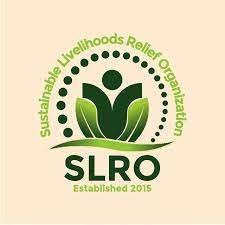Who We Are
Sustainable Livelihood Relief Organization (SLRO) was founded in 2015 to address persistent gaps in access, opportunity, and support for immigrant and refugee families in Lewiston and Auburn, Maine. The organization began as a farming initiative led by Somali Bantu community members who wanted to grow familiar crops, reconnect with land-based practices, and improve food access for their families. SLRO supported this early work by helping families secure growing space, access seeds and tools, and coordinate planting days in Somali and Maay Maay. As these efforts expanded, SLRO took on a service provider role to Isuken—the nation’s first Somali Bantu farm-to-table food truck cooperative. While Isuken was fully led by the community, SLRO helped with essential logistics, including translation, permitting, and coordination with local agencies. That experience shaped SLRO’s model: offering practical support without taking ownership, and helping community members move their ideas into action with guidance that respects their leadership.
Since then, SLRO has grown into a trusted, community-rooted organization known for its responsive, relationship-based approach. We work primarily with Somali Bantu families who face multiple barriers to stability: language isolation, limited formal education, low-income employment, and a lack of access to systems that were not built with them in mind. Many of the families we serve are non-literate in any language and have lived through displacement, poverty, and cultural loss.Our approach is based on what we’ve seen and heard from families over the years. We design everything around oral learning, direct coordination, and built-in support services like interpretation and transportation. We do not assume access or familiarity—we meet people where they are and adapt based on real-time feedback. Families are involved at every step, and our work is shaped by their priorities, input, and lived experiences.
SLRO was created by immigrants who understood from personal experience how difficult it is to build a life in a new place when systems are unfamiliar, information is inaccessible, and basic support is inconsistent. That perspective continues to guide our work today. Whether we are helping someone grow food, reenter education, or navigate a local system, the goal is always the same: to reduce barriers, build trust, and offer consistent, culturally aligned support that helps families move forward.

